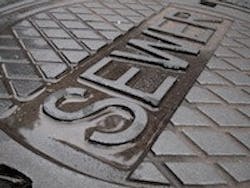City of Shreveport Agrees to $342 Million Sewer System Upgrade
The city of Shreveport, La., has agreed to make significant upgrades to reduce overflows from its sanitary sewer system and pay a $650,000 civil penalty to resolve Clean Water Act (CWA) violations stemming from illegal discharges of raw sewage, the Department of Justice and the U.S. Environmental Protection Agency (EPA) announced. The state of Louisiana, a co-plaintiff in this case, will receive half of the civil penalty.
When wastewater systems overflow, they can release raw sewage and other pollutants, threatening water quality and potentially contributing to disease outbreaks. To come into compliance with the CWA, the city estimates it will spend approximately $342 million over the next 12 years in order to improve the sewer system’s condition. While the city upgrades the system, it will also implement a program for capacity management, operation, and maintenance to help reduce sanitary sewer overflows.
“The key provisions of this settlement will eliminate overflows of raw sewage in neighborhoods that have for too long been subject to these contaminated overflows,” said Acting Assistant Attorney General Robert G. Dreher. “These provisions are critical to protecting the public health of all citizens of Shreveport.”
The Justice Department, on behalf of the EPA, filed a complaint against the city alleging that, since 2005, the city has had untreated sewage overflows from its sanitary sewer system in violation of the CWA and state-issued discharge permits. The cause of these illegal overflows stems largely from the city’s failure to properly operate and maintain the condition of the sewer system, resulting in discharges of untreated sewage into local waterways and the community.
Shreveport’s wastewater collection and treatment system, including the Lucas and North Regional waste water treatment plants, serves approximately 220,000 people in an environmental justice area.
Keeping raw sewage out of the community and the waters of the United States is a national priority for EPA, as sewage overflows can present a significant threat to human health and the environment. These discharges can degrade water quality, spread bacteria and viruses, and cause diseases ranging from gastroenteritis to life-threatening conditions such as cholera and dysentery.
The settlement, which will be lodged in the U.S. District Court for the Western District of Louisiana, is subject to a 30-day public comment period before the court can give final approval and enter the consent decree as final judgment, at which time it will become effective. The proposed consent decree can be viewed online at www.justice.gov/enrd/Consent_Decrees.html.
Source: EPA
